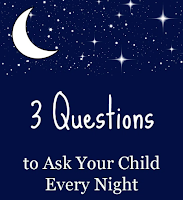In her article The Making of Mates some simple but sound advice is shared: " parents can help by talking with their children about what they can do or try, the responses they might get and how to handle these. Rehearsing certain social behaviours at home such as making eye contact, speaking in a clear voice and asking to join in can also be useful." Zyron Krupenia, a Perth-based clinical psychologist, who has worked with families for over 25 years advised.
"...... girls are more exclusive about their friendships from an earlier age than boys. They’re either eager to lead or eager to please- they have all sorts of rules and hierarchies, and there’s none of this casual coming in and out of a game as boys do.” Bernadette Healy, a primary school teacher with over ten years experience notes.
“Children need to be taught assertiveness and confidence building skills, such as how to say no or how to walk away from a bully, ideally before they even start school.”
Well accepted advice is that parents should talk regularly with their children about their friendships, offer suggestions for handling certain situations or behaviours if necessary, and discuss any concerns with their child’s teacher. Just make sure you organise an appointment to see the teacher so the discussion can occur in a calm unrushed timeframe.
“Parents should be on the lookout for any noticeable change in behavior patterns,” says Corinne Gregory, founder and president of SocialSmarts
Other signs that your child may be struggling include becoming self-absorbed, losing interest in friends, changing eating habits, faking illness to stay home from school, and avoiding social situations she previously enjoyed. Any of these behaviors may indicate that your child is having social problems, ranging from bullying to feeling left out to not making friends easily.
The key is to establish a trusting relationship with your kids and the school before a problem starts so that you can support them when they need it most.
- “Who did you sit with at lunch today?”
- “What did you do at recess?”
- “What was the best part of the day? What was the worst?”
- “I noticed some new kids in your class. What are they like?”
- “How have things changed between you and (friend’s name) now that you’re not in the same class?”
- “When I was your age, we had the meanest kid in our class. He was such a bully. Do you have anyone like that in your class?”
- “I’ve been hearing a lot in the news about cyberbullying. Is that happening at your school?”
Another three wonderful conversation starting questions that can be asked include:
- What is something that made you smile today?
- What is something that made you cry today?
- What is something that you learned today?
What do we do if we discover our child has been rejected? What can we do to help our precious children deal with all of the emotions that come with feeling rejected? No-one likes being rejected and some parents can feel like it is a personal attack on them too.
A child who has been told many times over the years that they are wonderful, unique and special will handle rejection much better than a child who has not regularly received the affirmations. There is no one else in the whole world exactly like them. THEY are important… even if someone else doesn’t see it. It is our job as a parent to make sure our child really KNOWS this!


No comments:
Post a Comment